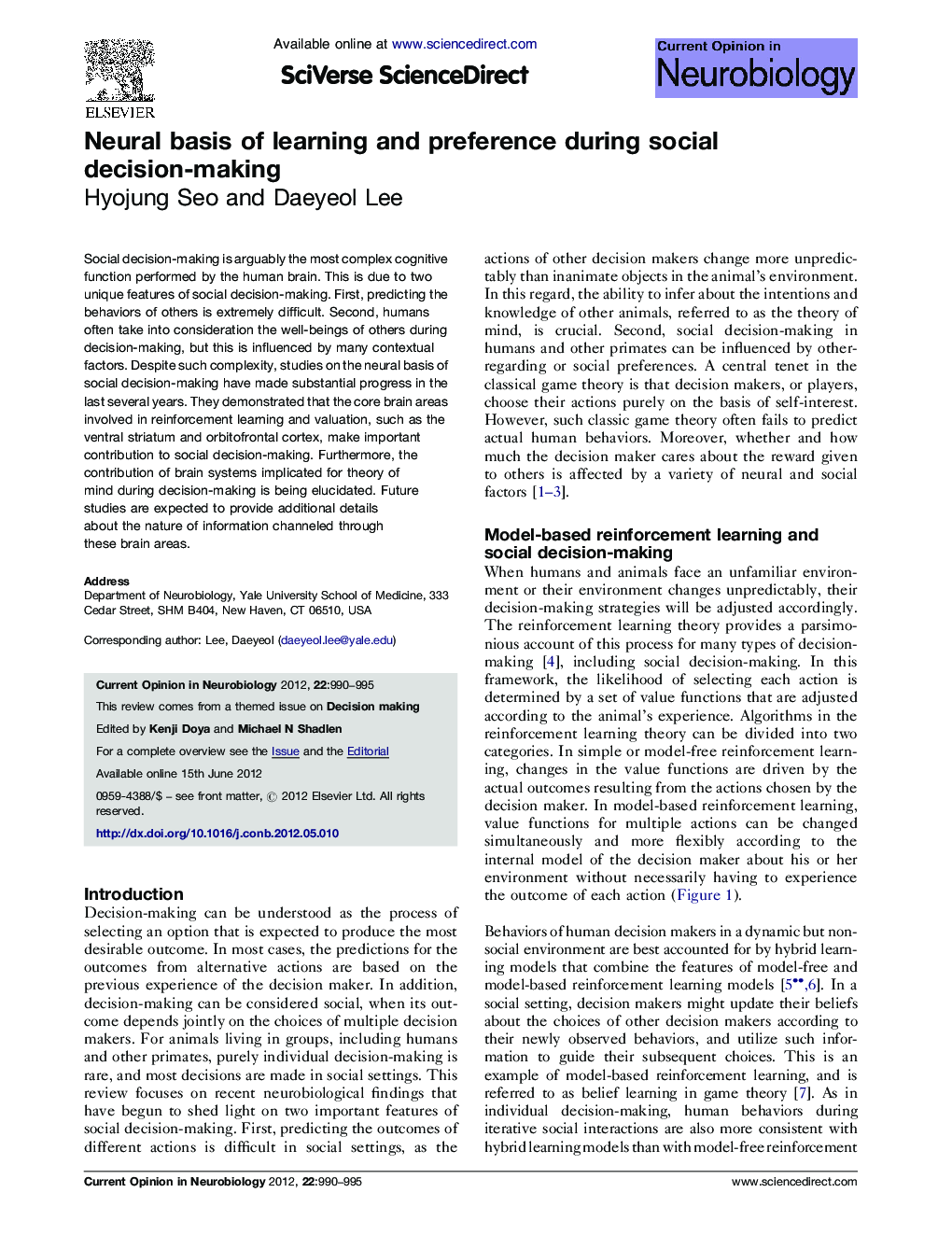| Article ID | Journal | Published Year | Pages | File Type |
|---|---|---|---|---|
| 6267261 | Current Opinion in Neurobiology | 2012 | 6 Pages |
Social decision-making is arguably the most complex cognitive function performed by the human brain. This is due to two unique features of social decision-making. First, predicting the behaviors of others is extremely difficult. Second, humans often take into consideration the well-beings of others during decision-making, but this is influenced by many contextual factors. Despite such complexity, studies on the neural basis of social decision-making have made substantial progress in the last several years. They demonstrated that the core brain areas involved in reinforcement learning and valuation, such as the ventral striatum and orbitofrontal cortex, make important contribution to social decision-making. Furthermore, the contribution of brain systems implicated for theory of mind during decision-making is being elucidated. Future studies are expected to provide additional details about the nature of information channeled through these brain areas.
⺠Human social decision-making is characterized by hybrid learning and non-selfish preference. ⺠Striatum and prefrontal cortex underlie learning and inference during social decision-making. ⺠Orbitofrontal cortex might be a hub of brain areas that determine social preference.
